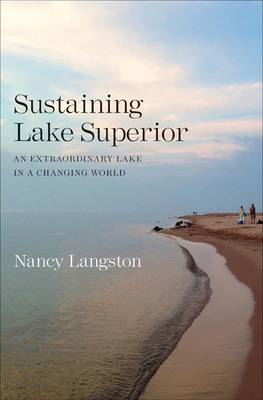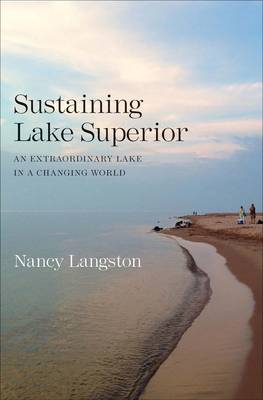
Bedankt voor het vertrouwen het afgelopen jaar! Om jou te bedanken bieden we GRATIS verzending (in België) aan op alles gedurende de hele maand januari.
- Afhalen na 1 uur in een winkel met voorraad
- In januari gratis thuislevering in België
- Ruim aanbod met 7 miljoen producten
Bedankt voor het vertrouwen het afgelopen jaar! Om jou te bedanken bieden we GRATIS verzending (in België) aan op alles gedurende de hele maand januari.
- Afhalen na 1 uur in een winkel met voorraad
- In januari gratis thuislevering in België
- Ruim aanbod met 7 miljoen producten
Zoeken
Sustaining Lake Superior
An Extraordinary Lake in a Changing World
Nancy Langston
Hardcover | Engels
€ 41,95
+ 83 punten
Uitvoering
Omschrijving
A compelling exploration of Lake Superior's conservation recovery and what it can teach us in the face of climate change Lake Superior, the largest lake in the world, has had a remarkable history, including resource extraction and industrial exploitation that caused nearly irreversible degradation. But in the past fifty years it has experienced a remarkable recovery and rebirth. In this important book, leading environmental historian Nancy Langston offers a rich portrait of the lake's environmental and social history, asking what lessons we should take from the conservation recovery as this extraordinary lake faces new environmental threats. In her insightful exploration, Langston reveals hope in ecosystem resilience and the power of community advocacy, noting ways Lake Superior has rebounded from the effects of deforestation and toxic waste wrought by mining and paper manufacturing. Yet, despite the lake's resilience, threats persist. Langston cautions readers regarding new mining interests and persistent toxic pollutants that are mobilizing with climate change.
Specificaties
Betrokkenen
- Auteur(s):
- Uitgeverij:
Inhoud
- Aantal bladzijden:
- 312
- Taal:
- Engels
Eigenschappen
- Productcode (EAN):
- 9780300212983
- Verschijningsdatum:
- 24/10/2017
- Uitvoering:
- Hardcover
- Formaat:
- Genaaid
- Afmetingen:
- 163 mm x 239 mm
- Gewicht:
- 589 g

Alleen bij Standaard Boekhandel
+ 83 punten op je klantenkaart van Standaard Boekhandel
Beoordelingen
We publiceren alleen reviews die voldoen aan de voorwaarden voor reviews. Bekijk onze voorwaarden voor reviews.









